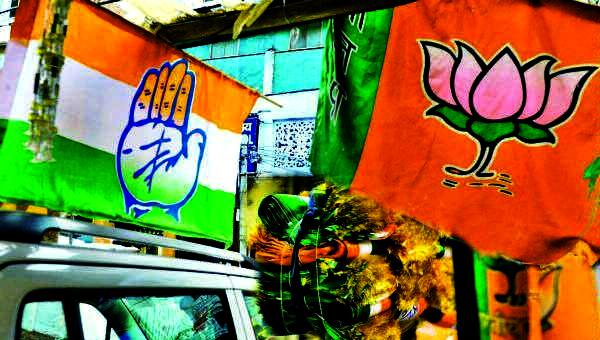Syed H. Hashmi
The results of the recent elections held in the four states of India have produced a curious mix of feelings among the people of India across a socio-political spread. The four states, Madhya Pradesh, Rajhistan, Chattisgarh and Delhi that went to polls recently attracted the attentions of the entire nation as the assembly elections there coming barely half a year before the general parliamentary elections were seen as proleptic to what was to follow in the next six months or so. The two main political parties, Congress and BJP, had played out their histrionics as adroitly as they could at the hustings. BJP’s prime ministerial candidate, Narendra Modi, had addressed numerous public meetings with his wonted vehemence and sarcasm. Congress on its part had tried to keep a semblance of civility and decorum in its discourses. The aggressive rhetoric of the BJP and its saffron brigade engendered a feeling of apprehension in the Muslim and Christian community. Although BJP’s star campaigner, Narendra Modi, used all the ruses to dispel the fears and concerns of the Muslim community by getting them to attend his rallies and meetings, the apprehension of the Muslim community persisted. BJP used a two-pronged strategy to garner political support for itself. On the one hand was their strident and aggressive nationalism to please the majority community. On the other hand was the expression of charitable hospitality towards the Muslim community.
The constituencies of the national capital, Delhi, saw the emergence of a third party, the Aam Admi Party (AAP). This was a spinoff resulting from the mass movement in favour of a demand for the institution of a Lok Pal (a system of public jurisdiction and redress). Arvind Kejriwal, a young engineer and ex-civil servant, had gathered a coterie of like-minded people around him who began to protest against large-scale corruption endemic in governmental departments. This was the genesis of the AAP. Surprisingly, the AAP began to gather steam quite rapidly in the national capital. Perhaps the reason was that the Delhiites have a propensity for things eccentric and outlandish. AAP too was a bit in the same vein. Both the traditional rivals, the Congress and the BJP, however took the emergence of AAP as a flash in the pan and not a very serious threat to their political equanimity.
Rahul Gandhi, the Congress Vice President, sublimely lacking in political astuteness and sagacity, went about his electioneering tours and rallies with a mix of smugness and innocence. He sounded optimistic to the point of presumptuousness. The Indian masses are not the kind to be moved or convinced by sensible rhetoric or plain discourse. They need a sprinkling of ‘masala’ and spice of cunning. Rahul Gandhi was too naïve to have recourse to that kind of armoury. He was far too credulous and far too simple in his political faith. He felt that Congress had a history enshrined in the reality that was India. This was an inviolable credo and invincible position. A dream that Rahul Gandhi had woven in the shape of a national texture.
The results of the election in these four states were startling. The BJP did remarkably well whereas the Congress was completely shattered and shaken with dismay and disbelief. The BJP feels overjoyed and the Congress utterly disappointed. Sonia Gandhi, The Chairperson of the Congress party used the word ‘disappointed’ (and not dismayed) after the results were declared. Rahul Gandhi’s response was that of stoic resignation. He said that it was time to ponder, to learn and to repair.
However, the reality of the election results opens up new vistas of thought and education. The BJP’s performance, although far superior to that of the Congress, is not what they had expected it to be in the wake of Modi’s whirlwind and blustering tours. The Congress had failed miserably not because of Rahul Gandhi’s inanities but because of the venality of some of its associates. AAP did so well in Delhi not because of its fight against corruption but because of it being a curiosity for the Delhiites who felt ‘a lonely impulse of delight’ in behaving in an aberrant mood for a change.
So there is no reason for the BJP to be elated, for the Congress to be despondent and for the AAP to be over-exuberant. No radical changes are going to take place. No cause for the Muslim community to be apprehensive. No one is going to dragoon them into singing ‘vande mataram’. Despite all the rhetoric of the BJP and the AAP, the venality is not going to die out, the prices of commodities are not going to come down much, and the filth on roads and sleaze in offices is going to continue.
Loading...






















